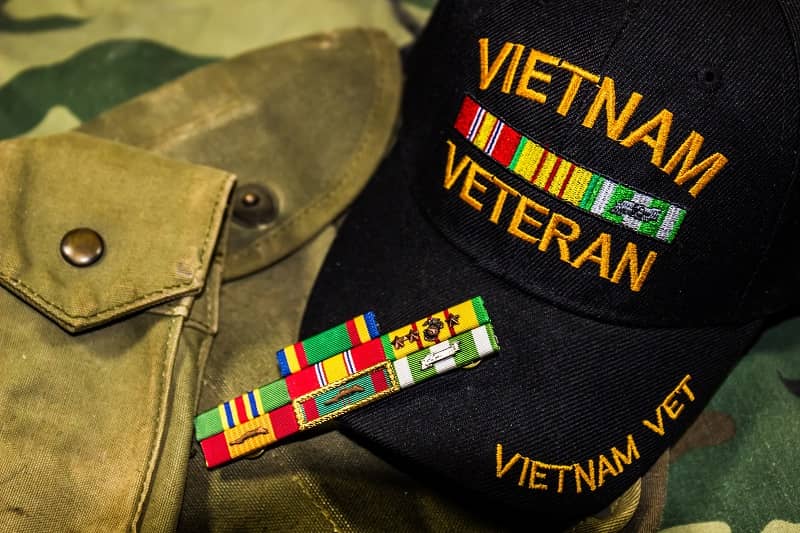If you’re eager to show your appreciation for those who served in the Vietnam War, we’ve got some actionable suggestions to help you channel that support in the best way possible.
Learn about the history.
Despite being one of the most prominent wars in terms of media depiction, the Vietnam War is still among the more misunderstood conflicts in US history. There are significant misconceptions that skew the public’s perception of the war. These errors end up tainting how veterans are viewed. As a result, a great way to honor those who served in the Vietnam War is simply to learn about the history.
Whether you prefer reading books, listening to podcasts, tuning into documentaries, or watching film depictions, there’s no shortage of excellent and accurate content available. Gaining an accurate and holistic perspective on the conflict is doing your part to thank veterans for their sacrifices.
Say “thank you” to veterans.
It can feel a bit weird to thank Vietnam veterans for their service decades later. However, this seemingly small gesture speaks volumes and goes a long way in making veterans feel appreciated, understood, and honored. This is especially important for Vietnam Veterans who experienced a relatively unwelcome return from theater due to negative media depictions.
If you have a relative, coworker, friend, neighbor, or even acquaintance who served in the war, consider verbalizing your appreciation for their service. It can make a difference in how accepted veterans feel in their communities even decades after the conflict. In reality, you probably won’t even begin to realize how impactful a simple thank you can be.
Ask about their service respectfully.
There are a number of ways an individual’s service in the Vietnam War might arise. Some veterans have hats, bumper stickers, shirts, and other materials that communicate their experience. In these instances, it’s safe to assume that a veteran might be open and even eager to discuss their service.
It can be a touchy subject, so stick to neutral questions that give the veteran room to elaborate according to their comfort level. Here are some questions you can ask comfortably:
- Did you serve in the Vietnam War?
- What branch were you in?
- How long did you serve?
Volunteer to assist struggling veterans.
Tragically, many military veterans don’t get the government support they deserve upon returning home from deployment. There are a number of private, grassroots organizations picking up the slack to ensure veterans no matter their age or condition are taken care of. Volunteering your time to these organizations is a great way to honor those who served in Vietnam.
These brave men and women sacrificed their lives to protect the freedoms you enjoy daily, and dedicating your time to supporting them after returning home is one of the most direct ways to show your appreciation. There are plenty of organizations that support Vietnam Veterans specifically since these veterans face unique challenges.
Donate to projects honoring service members.
A critical part of commemorating, honoring, and remembering service members is the funding of projects that seek to memorialize their service and sacrifice. Learning about the war through media is meaningful, but it stops short of permanently and publicly showing appreciation and support for those who served.
There are projects around the country on the federal, state, and municipal levels seeking to memorialize those who have served and made the ultimate sacrifice in the Vietnam War. Offering a donation of any size is a great way to show your support while ensuring the memory of the Vietnam War lives on for generations.
The Oregon Vietnam Memorial is dedicated to honoring those who served in the Vietnam War through the establishment of a memorial in Oregon. If you’re interested in learning more about the project and how you can donate to show your support, visit www.ocvvm.com
